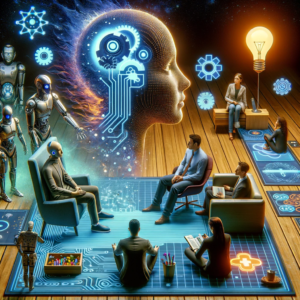Reflecting on Mental Health Challenges
In reflecting on the past weeks, particularly Chapter 14, I’ve delved into the complexities of mental health challenges faced by African Americans. This exploration, set against the backdrop of current movements and reactions from white communities, underscores the profound significance of counselors in addressing these clashing concepts and challenges. The context of a world grappling with COVID, AI advancements, potential nuclear war, and economic collapse adds layers to these societal issues.
The Visible & Invisible Experiences
The statistics on disparities in mental health care for African Americans are both interesting and disheartening. They face challenges in accessing mental health services, are more prone to terminate therapy prematurely, and often face misdiagnosis. This paints a picture of discriminatory systems in our society. Their experiences remind me of the adoptee experience, with both visible and invisible aspects. The mental health issues for adoptees, less studied and likely influenced by political reasons within the system, resonate with me.
Do More You Privileged White People!
The concept of “doing more” due to unasked-for privilege is a complex topic. It raises questions about the measurement of “more” and the judgment of someone’s efforts through a multicultural lens. The idea of “doing more” becomes a slippery slope, especially considering individual challenges and the emotionally charged narratives in discussions about racism.
Do More You Professional Counselors!
If not professional counselors, then who? Therapists are positioned to bridge the gap of cultural mistrust and provide understanding and healing. However, the reality of burnout in the profession raises questions about the accountability within the systems directing the mental health industry. Are the current structures, especially those driven by for-profit motives of insurance companies, exacerbating the problem?
Is AI More Culturally Competent?
The potential role of Artificial Intelligence in enhancing cultural competency is a topic that warrants more discussion. AI could relieve therapists from societal expectations of perfection, offering tools to better understand cultural nuances. This could lead to more tailored treatment plans and a cultural advantage for counselors, moving away from a one-size-fits-all approach.
Supporting Scholarly Article
The article “Cultural Diversity and Mental Health: Considerations for Policy and Practice” from the National Center for Biotechnology Information (NCBI) explores the intersection of cultural diversity and mental health. It discusses the implications of cultural differences for mental health practice, including perceptions of health and illness, treatment-seeking patterns, and issues of racism and discrimination. This article supports the importance of cultural sensitivity and competence in mental health counseling, aligning with the themes discussed in your reflection.






